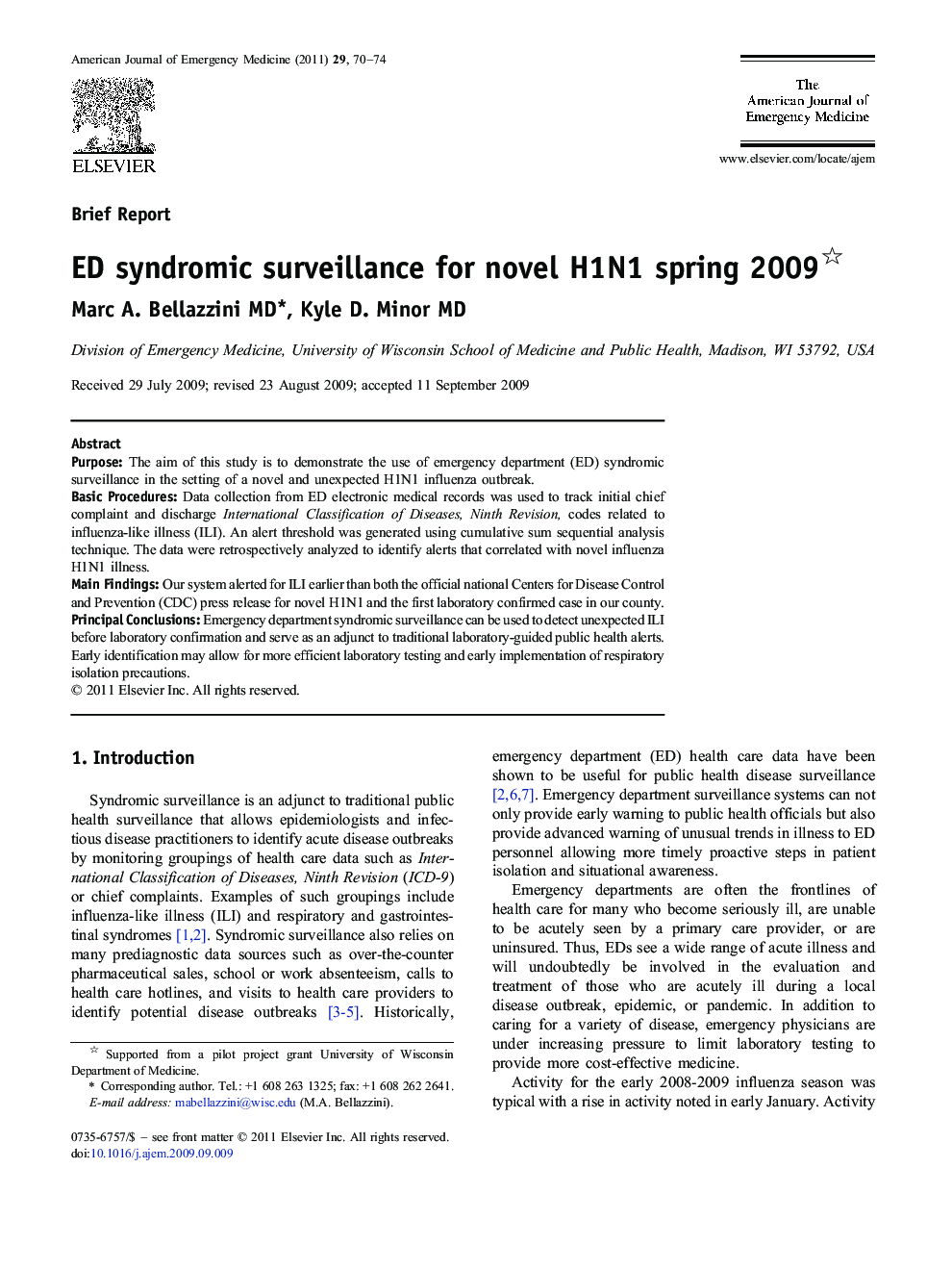| کد مقاله | کد نشریه | سال انتشار | مقاله انگلیسی | نسخه تمام متن |
|---|---|---|---|---|
| 3225434 | 1588152 | 2011 | 5 صفحه PDF | دانلود رایگان |

PurposeThe aim of this study is to demonstrate the use of emergency department (ED) syndromic surveillance in the setting of a novel and unexpected H1N1 influenza outbreak.Basic ProceduresData collection from ED electronic medical records was used to track initial chief complaint and discharge International Classification of Diseases, Ninth Revision, codes related to influenza-like illness (ILI). An alert threshold was generated using cumulative sum sequential analysis technique. The data were retrospectively analyzed to identify alerts that correlated with novel influenza H1N1 illness.Main FindingsOur system alerted for ILI earlier than both the official national Centers for Disease Control and Prevention (CDC) press release for novel H1N1 and the first laboratory confirmed case in our county.Principal ConclusionsEmergency department syndromic surveillance can be used to detect unexpected ILI before laboratory confirmation and serve as an adjunct to traditional laboratory-guided public health alerts. Early identification may allow for more efficient laboratory testing and early implementation of respiratory isolation precautions.
Journal: The American Journal of Emergency Medicine - Volume 29, Issue 1, January 2011, Pages 70–74